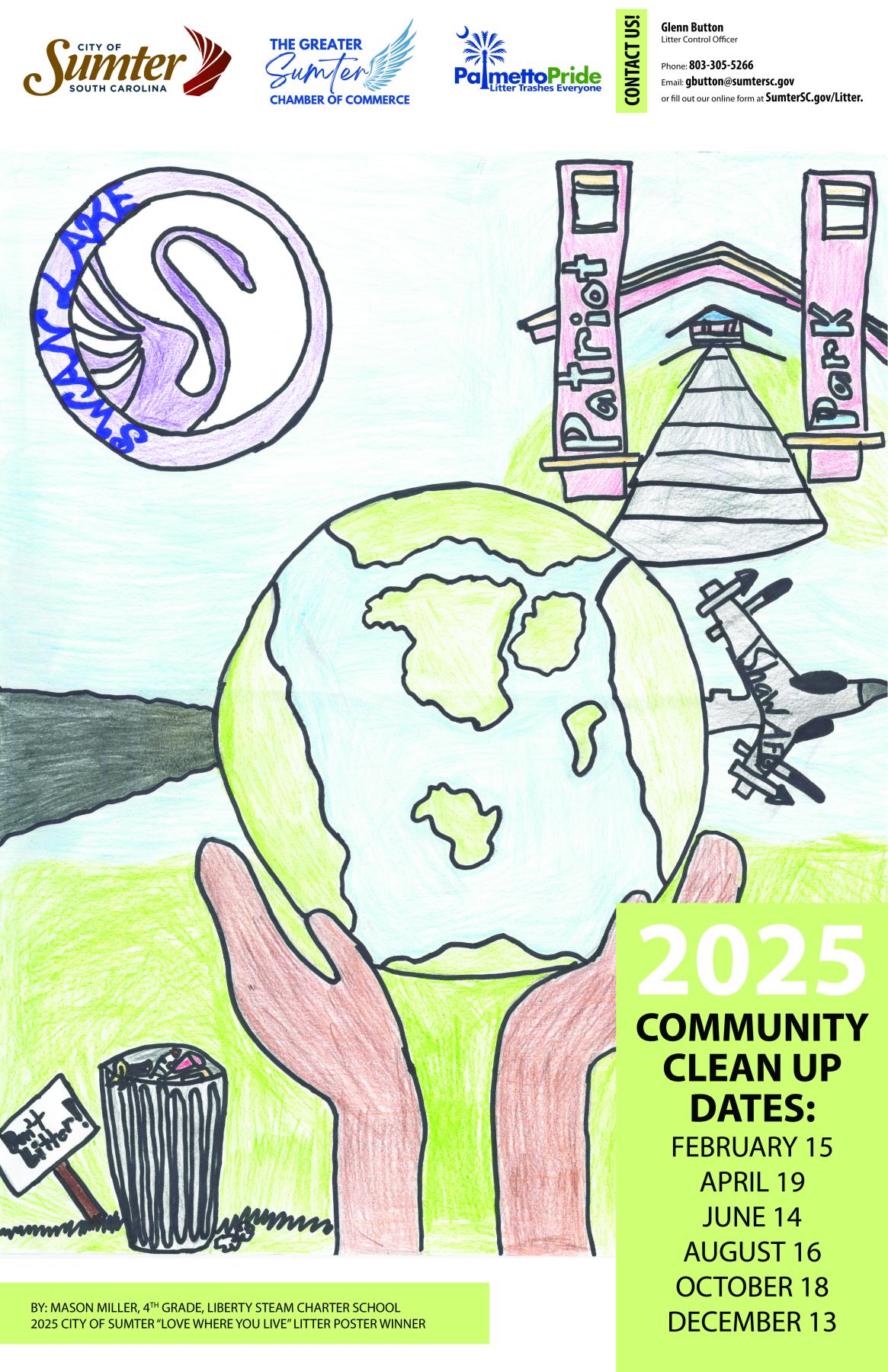Litter is a social problem that affects everyone in Sumter. Litter on the roads and highways are a direct result of individual actions and those actions directly impact our local economy. Litter can also lead to increased crime; it signals to criminals that residents don’t care what happens in their neighborhood and makes the area more vulnerable.
The City of Sumter started this initiative as a response to a community demand to eliminate litter.
CURRENT PROGRAMS:
Click Here to view Community Clean-Up Schedule
Take the litter-smart business pledge
Where Does Litter Come From? Litter Lesson STEM Kit
In partnership with Clemson Extension and Palmetto Pride. If you would like a litter representative to visit your school, call our Litter Officer today.
Tarp Program
In partnership with the Sumter County Sheriff's Department and the Sumter County Landfill
Tire Buy-Back Program
Next event is Saturday, April 12, 2024 from 9 am - 1 pm at Sumter Civic Center, 700 W. Liberty Street.

Palmetto Pride Educational Activities & Resources
Love Where You Live Litter Poster Contest
2025 Winners

...that litter near storm drains, especially plastics can contaminate and clog waterways? Storm drains lead to waterways, so litter poses a potential hazard to marine life, our nation's water system and can contribute to localized flooding in our community.
...that litter has a direct effect on your bank account? Litter on the streets causes property values to decrease and property taxes to increase. Litter can also be a deterrent to businesses locating in our area and therefore job opportunities are lost.
...that litter also causes car insurance rates to increase? Litter especially larger items when left in the street can become a contributor in motor vehicle accidents. Insurance companies take this into consideration when determining rates, so the more litter on the streets in your area the more money you could have to pay for insurance.
...that cigarette butts are the number one most frequently littered item. Cigarette butts make up roughly 38% of all U.S. roadway litter and take over 5 years to decompose. (According to information obtained by Palmetto Pride about 95% of cigarette filters are composed of cellulose acetate, a plastic which can persist in the environment for 10+years.)
...that packaging litter makes up nearly 46% of litter 4 inches and greater? This includes but is not limited to fast food containers, snack wrappers, plastic bags and other packing products. Some of the most commonly littered items take extremely long to decompose:
- Plastic bag - 20 years
- Tin can - 50 years
- Aluminum can - 200 years
- Plastic bottle - 450 years
- Glass bottle - 1 million years



